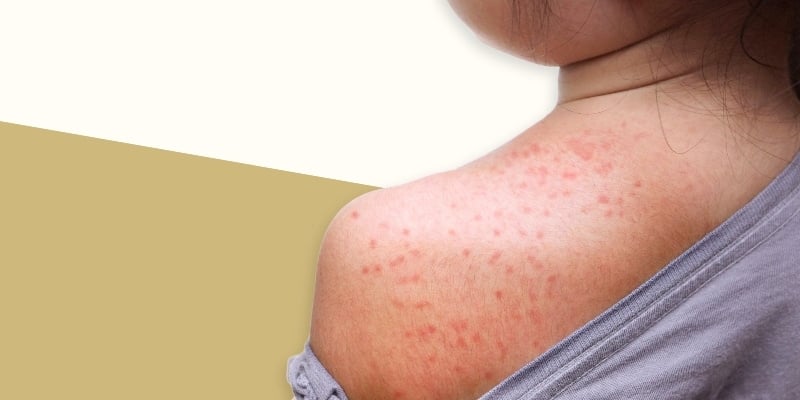How contagious is the measles virus, which is spread through the air?
It’s so contagious that if a person with measles were to walk into a small room and then leave, for the next two hours, anyone who walks into that room who is not vaccinated can get measles. If unvaccinated people are around someone who has measles, we estimate that 12 to 18 of them will be infected – by one person. In general, nine out of 10 unvaccinated people who are exposed will become infected.
Sadly, Texas just reported its first death in an unvaccinated school-aged child. Put that in perspective for us, meaning how common are fatalities, and how serious can the disease be?
Here in the United States, because vaccines have been so effective, we fortunately don’t see this commonly. The last pediatric death from measles was in 2003. For a majority of people, they develop what seems like cold symptoms – fever, cough, runny nose, conjunctivitis (pink eye) – and then, after a couple of days, develop a rash. For most people, those symptoms improve. However, one in five unvaccinated children will be hospitalized (often with pneumonia). And we know that up to three of every 1,000 will die.
There are other complications that can be really serious, including brain swelling and damage. And that happens in about one in every 1,000. Even if someone recovers from measles, in rare cases they can experience a horrible disease up to 10 years later that leads to memory loss, seizures, blindness and eventually death (as the latent virus goes rogue). It’s called subacute sclerosing panencephalitis (SSPE).
What is the current picture of measles outbreaks in the U.S., and why is the issue concerning experts?
What I know is that this Texas outbreak has spread to New Mexico, and this is the largest ongoing outbreak for this year by far (already accounting for nearly half of the total U.S. cases reported last year). There have been 1,267 U.S. cases reported, with a total of 38 jurisdictions affected (as of July 1).
The concern is that when you have a community that has a low vaccination rate for measles, measles is so contagious, that it spreads like wildfire. And measles is a plane flight away. There’s still a significant measles’ burden throughout the world. And when we have pockets of low vaccination in communities all over the U.S., it’s not a matter of if. It’s a matter of when a measles outbreak is going to occur.
What is the MMR (measles, mumps and rubella) vaccine schedule of doses for children?
We give kids their first dose around their first birthday, at 12 to 15 months old. And we give them their second dose when they are 4 to 5 years old, along with any vaccines they need before they enter kindergarten.
How vulnerable is an infant before the first dose, and how protective is that first dose?
Infants receive some natural protection from antibodies passed to them during pregnancy if the mother was vaccinated prior to pregnancy, but this immunity gradually fades over the first year of life. In communities with high measles vaccination rates, the risk to babies remains low due to strong community immunity.
However, in areas experiencing an outbreak or for families traveling internationally, infants can receive the MMR vaccine as early as 6 months of age. If babies are vaccinated before their first birthday, they will still need two additional doses to ensure full protection. One dose is widely cited for being 93% effective. With the second dose, it’s 97% effective.
Who else is most at risk?
People who are immune compromised and have other severe chronic diseases. Unvaccinated pregnant women. For someone who’s pregnant, measles can lead to miscarriage, stillbirth, premature birth and low birth weights. Healthcare personnel and anybody who is living in a group setting where measles may spread faster, which is often the case with college students.
Who might need a measles booster, especially if they are concerned about an outbreak?
Most adults don’t need a booster, as today’s live, attenuated (weakened) vaccine is highly effective and provides lifetime protection. People born before 1957 likely had measles and, therefore, have natural immunity.
However, some people (not all) before 1968 were vaccinated with an “inactivated” version of the vaccine. Those people, or those who don’t know which type they received, might need a booster, as that vaccine was less effective. Check with a healthcare provider, who can review vaccination records or order an antibody test.
Others more at risk who sometimes receive boosters include people living in close quarters (such as college students) during an outbreak, healthcare workers and international travelers.
Breakthrough cases (infection in the vaccinated) can happen during an outbreak but are generally mild.
Is there anything else you would like to add?
Hearing about this child’s death is heartbreaking. My heart goes out to the family and community. And one thing I sometimes see happen that is not helpful is shaming – shaming children or parents who are affected by measles who didn’t vaccinate their children.
Vaccine misinformation unfortunately just preys on normal parent fears. And these parents are not acting out of bad intentions; they’re simply caught in a web of bad information.
Also, a lack of access to vaccines is still a major barrier, especially in rural communities. And that’s not just access to the vaccines themselves, but it’s also access to a trusted healthcare professional who can address their concerns and listen to their questions. We need to partner and listen to them, not shame them.
This interview was edited for length and clarity.





